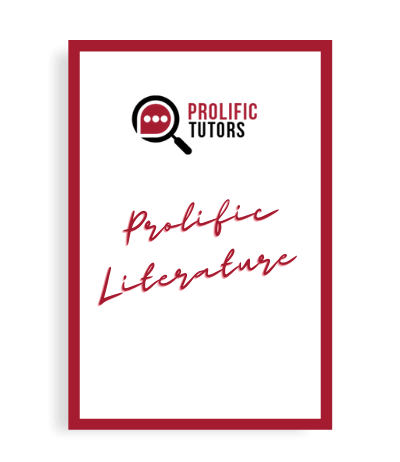[Complete] – MEDS 3402 – Paranormal Essays – 3,000 Words | Academic (Paranormal Media – Spooky Studies Since 2014)
December 2, 2021 2022-03-03 22:04[Complete] – MEDS 3402 – Paranormal Essays – 3,000 Words | Academic (Paranormal Media – Spooky Studies Since 2014)

[Complete] – MEDS 3402 – Paranormal Essays – 3,000 Words | Academic (Paranormal Media – Spooky Studies Since 2014)
These are instructions for 3,000 words essay at De Montfort University Leicester Media School – Meds 3402 Paranormal Media (Spooky Studies Since 2014)
NB – We have written several versions of the different topics. Get your CUSTOM copy by emailing us or filling in the order form on our homepage. We got you!
Instructions
You will select ONE question from the list in the next section and write an essay of not more than 3,000 words.
Assignment Guidelines:
It is essential that your essay is informed by appropriate academic sources. You should construct your argument in relation to relevant academic sources.
The word limit is important – not only because it should not be exceeded, but because the recommended length provides sufficient space for you to aspire to a more complex (and well-informed) piece of writing. If your essay falls short of the set word limit it may be because it is not sufficiently informed by theory or does not engage with the topic to the depth required.

When you are writing your essay consider the questions below. These are the criteria upon which your essay will be marked:
- Have you constructed a convincing argument of your own, written in your own words in an academic style and supported by appropriate evidence?
- Have you analysed a suitable range of ideas relevant to your topic and given due balance and weight to the different aspects of the question?
- Have you researched your topic well and made full use of the library, the short loan section and relevant journal articles?
- Have you referenced the sources of the ideas you have used accurately, fully and intelligently using the Harvard System?
- Are all of your sources included in your bibliography?
- Is your essay clearly written, well-structured and presented, and free from grammatical, spelling and proof-reading errors?
- Have you avoided using colloquialisms and hyperbole (overstatement)?
List of Essay topics
- Critically explore and evaluate the contention that the study of paranormal media draws upon and espouses ‘subjugated knowledge’ (Foucault, 1972).
- Using two case-studies, critically discuss the notion that ‘the media seems to rank the newsworthiness of paranormal related stories according to the entertainment and interest-value of paranormal subjects to the general public’ (Northcote, 2007: 79).
- Briefly outline the concept of ‘spectrality’. Critically comment how this theory is useful to the study of one genre of paranormal media.
- With reference to one example of paranormal media example, critically outline and explore the term Hauntology.
- Undertake and transcribe a focus-group interview on audience views on paranormal reality television use. Critically comment on how and in what ways belief-systems discussed on the module are evidenced.
- Critically apply and evaluate an existing media and communication theory in relation to a single paranormal media text.
- Outline and critically comment on how and in what ways Hall’s (1974) Encoding Decoding model can be revised to take account of competing paranormal belief systems?
- With reference to one current PRTV series, critically debate to what extent genre and narrative are vital components that either support or refute paranormal belief systems.
- To what extent is pareidolia a central feature of paranormal media?
- With reference to either one paranormal film text or one paranormal magazine discuss to what extent is Freud’s (1919) concept of the ‘uncanny’ a central feature of your example?
- Is PRTV a victim of its own success?
- Using a single case study, discuss the contention that paranormal media constructs the objects of which it speaks.
- With reference to one media example of media evidenced in the Scole Experiments (1993-8) debate to what extent does the Scole Report (2003) constitute tangible evidence of the afterlife?
- Using a case-study approach of online fan ghost hunters, critically discuss the notion that fans of PRTV are ‘textual poachers’ (Jenkins, 1992).
- With reference to relevant theories, such as those of Freud, and cultural history, plus utilising case studies, such as The Exorcist (1973), discuss the relationship between madness and the paranormal
Remember – We have written several versions of the different topics. Get your CUSTOM copy by emailing us or filling in the order form on our homepage. We got you!
Assessment criteria
Essays are expected to demonstrate an appropriate level of competence in the following areas:
- Depth of understanding and application of a breadth of research material.
- An ability to analyse, synthesise, argue and communicate conclusions.
- An awareness of, and an ability to judge, the theoretical, methodological and/or other debates central to the chosen area of fan studies.
- When completing the self-assessment form for your essay, you should consider the following questions. These are the criteria upon which your essay will be marked:
- Have you demonstrated that you understand the concepts that form the core of the module?
- Have you constructed a convincing argument of your own, written in your own words and supported by appropriate evidence?
- Have you developed a suitable range of ideas relevant to your topic and given due balance and weight to the different aspects of the question?
- Have you researched your topic well and made good use of the library?
- Have you referenced the sources of the ideas you have used accurately, fully and intelligently? Are all of your sources included in your bibliography?
- Have you made perceptive and well-integrated use of your own textual examples and discussed these in an appropriately sophisticated way?
- Is your essay clearly written, well-structured and presented and free from grammatical, spelling and proof-reading errors?
Assignment Presentation
There are some basic rules which you can follow to enhance the quality and the readability of your assignments. While some students are already well-versed in writing and presentation techniques, others are advised to consult the following as an ‘assignment checklist’:
- All typing should be double-spaced. This means leaving an empty line between the lines of your own writing. This is important when a tutor is marking your work and advising you (by writing on your essay itself) how to improve your writing. In respect of script size, you should use a 12-point font for the main essay text.
- Always include a bibliography and reference accurately. There will be no instance where a student does not have to research written material outside of that offered in lectures and seminars. Tutors are most interested in the academic books and articles you have read and expect several sources to be used for each essay. You are expected to use a recognised and systematic method for referencing source material in your coursework. For Media and Communication essays you will use the Harvard System. This is referencing system with all books and articles cited listed alphabetically by author’s name at the end of the essay under the title ‘Bibliography’. (see below for details) and one that places author surname year of publication and page number after each quotation, e.g. (Hall, 1995: 56). NB: Accurate referencing is not an optional extra; it is an essential academic courtesy and convention.
- Always avoid colloquialism and hyperbole (waffle and overstatement). Colloquialism is referred to by your teaching team as ‘waffle’; sentences of this variety most commonly begin with ‘most people believe’, ‘Nowadays we think’, ‘I personally know’, ‘at the end of the day’ and are found in tandem with the use of personal pronouns, ‘we’ ‘us’ ‘you’ ‘I think’ or combinations of ‘you must agree’, ‘it’s human nature’ etc. Such poor rhetorical writing techniques are often found in essays where there has been a clear lack of engagement with the reading material. This neglect then results in the students’ reliance upon their own unsubstantiated common-sense view. Your own personal view will be evident in the overall essay structure, your choice of quotation and source material deployed. Secondly, hyperbole is overstatement, for example, ‘very big’, ‘amazing argument’. ‘Many people’; ‘everyone thinks’ etc. and is to be avoided at all costs

![[Solved] ENGL147N - Week 7 Assignment- Final Draft of the Argument Research Paper](https://prolifictutors.com/wp-content/uploads/2023/01/Solved-ENGL147N-Week-7-Assignment-Final-Draft-of-the-Argument-Research-Paper--240x142.png)
![[Solution] - NR305 - Week 3 Discussion: Debriefing of the Week 2 iHuman Wellness Assignment (Graded](https://prolifictutors.com/wp-content/uploads/2022/06/Best-Answer-NR305-Week-3-Discussion-Debriefing-of-the-Week-2-iHuman-Wellness-Assignment-Graded--240x142.png)

![[Best Answer] NR305 - Week 2 Discussion: Reflection on the Nurse’s Role in Health Assessment (Graded)](https://prolifictutors.com/wp-content/uploads/2022/06/Best-Answer-NR305-Week-2-Discussion-Reflection-on-the-Nurses-Role-in-Health-Assessment-Graded-240x142.png)
![[Best Answer] NR305 - Week 2 Assignment: Wellness Assessment: Luciana Gonzalez (iHuman) (Graded)](https://prolifictutors.com/wp-content/uploads/2022/06/Best-Answer-NR305-Week-2-Assignment-Wellness-Assessment-Luciana-Gonzalez-iHuman-Graded--240x142.png)

